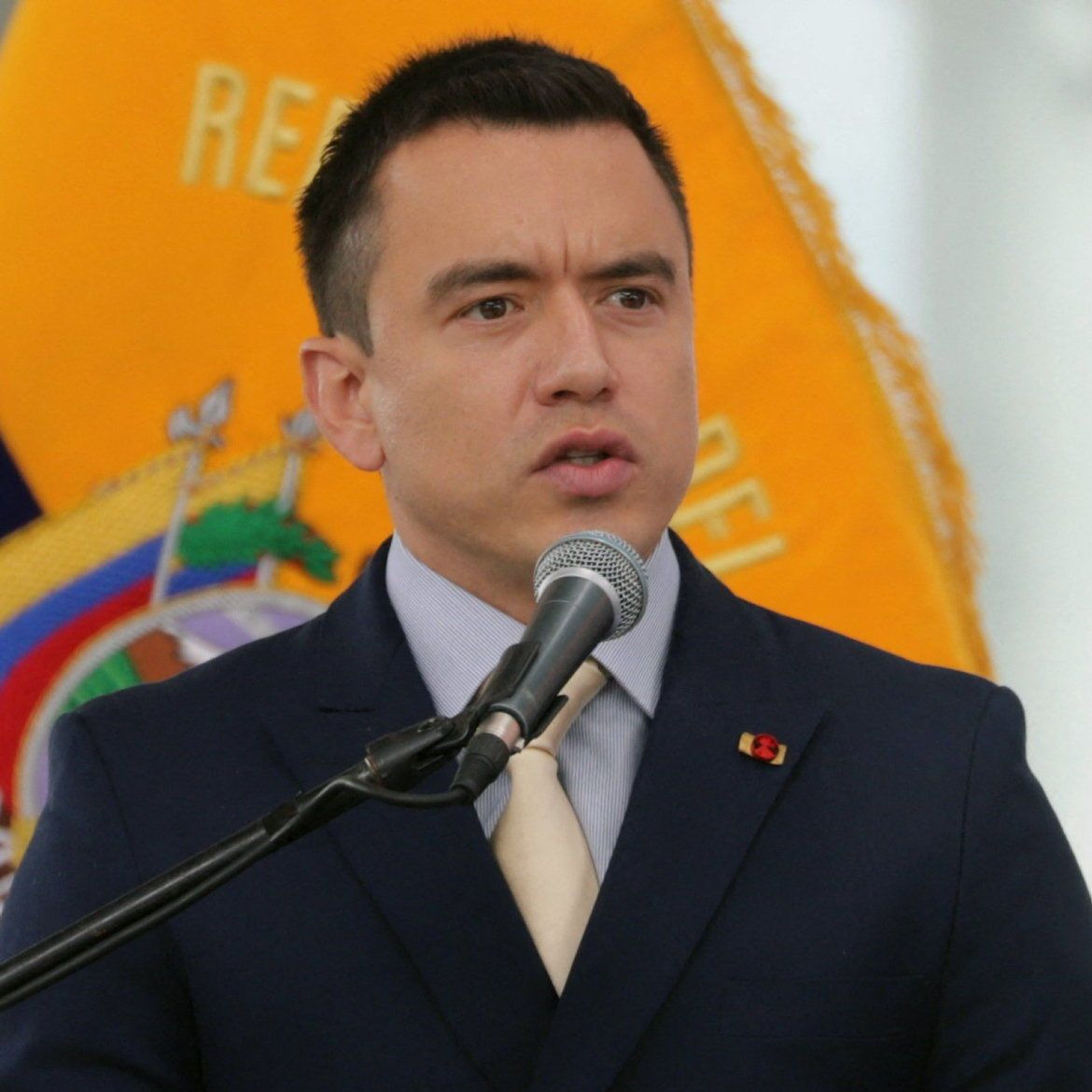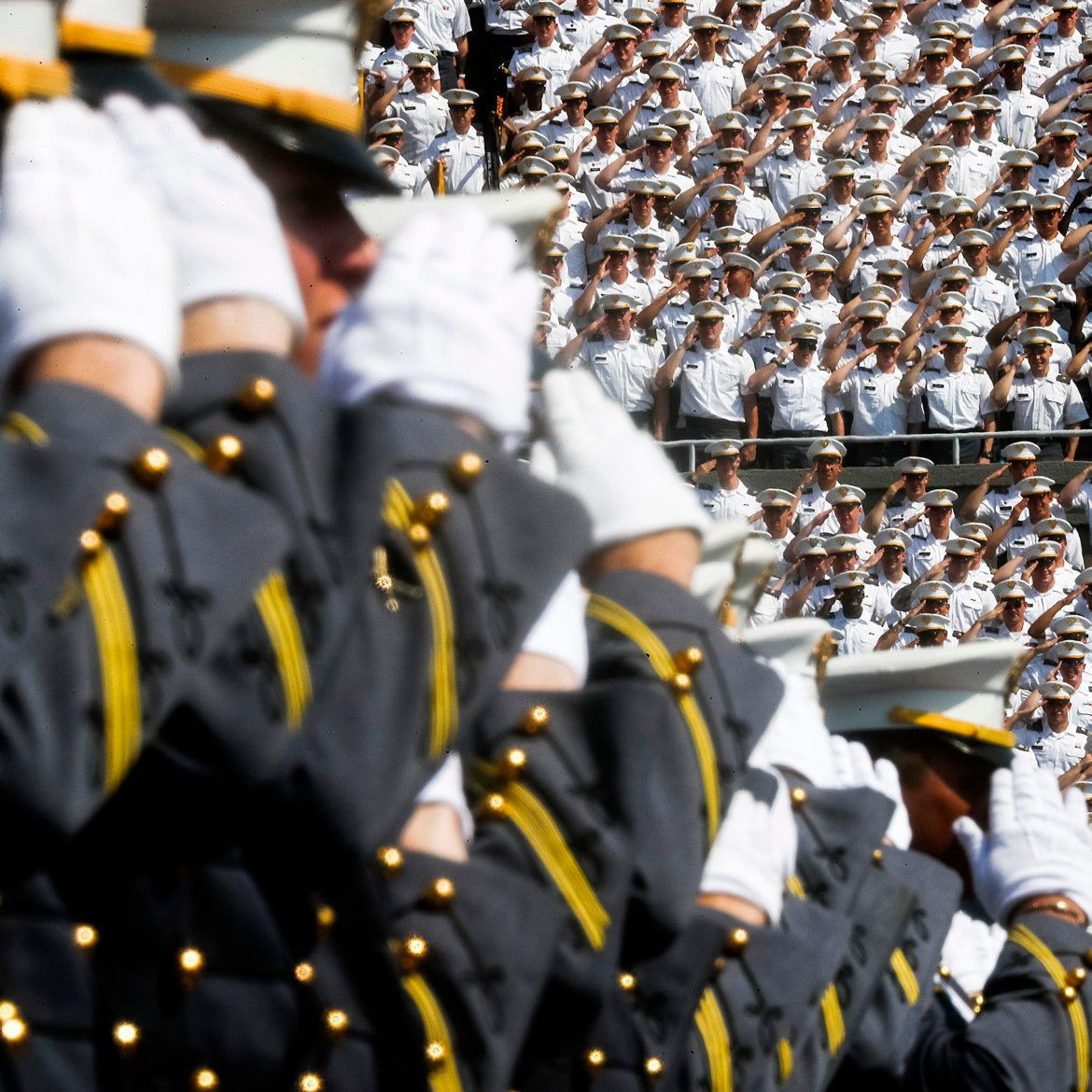Donald Trump said he will impose a 50% tariff on EU imports from June 1st, claiming that trade talks with the bloc are “going nowhere”. He also threatened a 25% tariff on iPhones made outside America, pressuring Apple to shift production from China and India. The announcements rattled markets: Apple shares fell 4% and Europe’s Stoxx 600 index dropped nearly 2%.
Mr Trump approved a “partnership” between US Steel and Nippon Steel, a Japanese rival. The president said that, under the deal, the American firm will remain in Pennsylvania, creating jobs and adding $14bn to America’s economy. In January President Joe Biden blocked a proposed $14.9bn takeover by Nippon, supposedly on the grounds that it was a threat to national security.
A judge in Boston temporarily blocked the Trump administration’s effort to revoke Harvard University’s ability to enrol international students. She agreed that the move, which Harvard called unconstitutional and politically motivated, would cause “immediate and irreparable injury”. Kristi Noem, America’s homeland-security secretary, said the action follows Harvard’s failure to provide records on alleged misconduct by foreign students; the university disputed those claims.
Russia and Ukraine began their largest prisoner swap of the war, which will involve the return of 1,000 soldiers each over three days. The countries agreed to the exchange at talks in Istanbul last week, which were the first direct negotiations in nearly three years. Donald Trump prematurely claimed the deal was complete, as he continued to push both sides to agree to a ceasefire.
Israeli airstrikes killed 16 people and injured dozens more across Gaza, according to Palestinian officials. Aid continued to trickle in after months of Israeli blockade, though officials warned that children are dying from starvation. Earlier, Binyamin Netanyahu, Israel’s prime minister, accused France, Britain and Canada of aiding Hamas after they threatened sanctions over Israel’s military operations in Gaza. He said their stance undermined Israel’s security.
RedBird Capital, an American private-equity firm, agreed to buy the group that owns the Telegraph for £500m ($673m), ending a two-year ownership battle. Lloyds, a bank, seized the British newspaper after the Barclay family, its proprietors at the time, defaulted on loans. Abu Dhabi’s state-backed investment firm will own a minority stake; Britain passed a law that restricts foreign state ownership of national newspapers which blocks it from taking full control.
Japan’s core inflation rose to an annual rate of 3.5% in April, the fastest pace in over two years, driven by soaring processed food prices. The index excludes fresh food but includes staples like rice and chocolate. The Bank of Japan faces a dilemma: raise interest rates to curb inflation, or hold steady to shield a fragile economy from Donald Trump’s trade war.
Word of the week: Chessboxing, a hybrid sport where competitors alternate rounds of chess and boxing, winning by checkmate or knockout.

A second term for Ecuador’s millennial tough guy
On Saturday Daniel Noboa, Ecuador’s rich 37-year-old president, will be inaugurated for the second time. He first won a snap election in November 2023 and was re-elected last month. His rise reflects Ecuador’s rightward turn in the face of spiralling gang violence.
The murder rate in Ecuador rose from about 7 per 100,000 in 2019 to about 46 in 2023. Similarly to Nayib Bukele, El Salvador’s president, Mr Noboa has responded with an iron fist—and a slickly produced social-media blitz of him locking up bad guys. He is building maximum-security prisons, has sent Ecuador’s military onto the streets and called for soldiers from America, Europe and Brazil to join them.
Unlike many in the region, Mr Noboa is pro-Trump. Critics say abuses of state power are increasing. And, after a dip, the murder rate has soared again. Ecuadorians must hope that he makes real progress on security in his new term without aping the authoritarianism of Mr Bukele.

The culture wars reach America’s military academies
On Saturday Donald Trump will address graduates of West Point, the US Army’s elite academy. The speech comes amid a war between his administration and America’s higher-education institutions: on Thursday the government said it would ban Harvard from enrolling foreign students; it has already cancelled federal funding. West Point has been spared the threat of budget cuts, but Mr Trump has meddled in its teaching.
An executive order Mr Trump issued in January prohibited military academies from promoting “un-American” concepts like “gender ideology” or the notion that the country’s founding documents are “racist or sexist”. Pete Hegseth, the defence secretary, has long complained that diversity initiatives undermine combat standards. The US Naval Academy chucked nearly 400 titles—about racism, the Holocaust and sexuality, among other topics—from its library ahead of a visit from Mr Hegseth in April. And earlier this month the New York Times reported that West Point professors dropped from their curricula unpleasant chapters from American history.

A groundbreaking exhibition on sexual violence
The Imperial War Museum in London was founded in 1917. More than a century later, it is for the first time staging an exhibition on one of the most devastating aspects of war. “Unsilenced: Sexual Violence in Conflict” is the first such show in Britain, and possibly the world.
There were roughly 2m instances of rape committed by Soviet Union’s Red Army after the defeat of Germany in 1945, for example. But as the exhibition demonstrates, sexual violence comes in other, less obvious, forms. Drawing on the museum’s huge collection of objects and visual records, the curators include, for instance, the sexual and physical abuse of child evacuees in Britain during the second world war. The sexual humiliation of Iraqi male prisoners in Abu Ghraib prison by American guards is also recorded. “Unsilenced” ends by showcasing the work of four NGOs seeking to bring perpetrators to justice in contemporary conflicts. It is distressing, but necessary, viewing.

Rugby’s new superstars
France is the dominant force in European rugby union. Teams from the country have won the Champions Cup, the continent’s premier club competition, the past four seasons. And a French side, Union Bordeaux Bègles, are favourites to win this year’s final against Northampton Saints, an English club, in Cardiff on Saturday too. Bordeaux’s squad boasts one of the sport’s finest prospects: Louis Bielle-Biarrey, a pacey 21-year-old winger who is already breaking scoring records.
Still, Northampton have a young superstar of their own. A year ago Henry Pollock was watching the club’s matches as a fan in the stands. Now the 20-year-old is one of the side’s most important players and an England international. What’s more, he was recently picked for the British & Irish Lions, a squad of the best English, Irish, Scottish and Welsh players that goes on tour every four years. Winning such a call-up is among the sport’s greatest achievements. Mr Pollock made it look easy.

Weekend profile: Aron D’Souza, the brash brain behind the “doping Olympics”
Aron D’Souza frames the future in epic terms. Last year, at a conference in Oxford on human enhancement, the lawyer and entrepreneur reminded the crowd that seemingly timeless institutions and norms, whether the United Nations, liberal democracy or human rights, “are the creation of men, not gods”.
His critics might accuse him of playing God. The trim, 40-year-old Australian is founder and president of the forthcoming Enhanced Games, which have been dubbed the “doping Olympics”. Athletes will be able to earn up to $1m for breaking world records using the sorts of drugs that would normally disqualify them. The first games, it was announced this week, are planned for Las Vegas in 2026.
He relishes battling critics who predict that the games will be dangerous or unfair. He points out that conventional athletics is rife with secret and unsafe doping practices.
His style is less that of a CEO than that of the founder of a movement. He sees the games as a catalyst for changing the very trajectory of humanity and altering the boundaries of what it means to be human. He wants people to expect to improve themselves beyond what would be possible in nature, describing it as a human right. The games are just the first step. They coincide with rising interest in consumer-health, longevity and enhancement products. Many worry, though, that this sort of shift in consumer and sporting behaviour will push young people to make ill-informed choices about their bodies.
If Mr D’Souza’s bravado sounds straight out of Silicon Valley, that is no coincidence. While a law student at Oxford, he met Peter Thiel, a tech billionaire and one of the founders of PayPal. He boldly asked how he could help Mr Thiel solve his biggest challenge. That question changed Mr D’Souza’s trajectory: he led the litigation in what became a landmark privacy case against Gawker, a scrappy media outlet that had outed Mr Thiel as gay. Mr Thiel is now a prominent backer of the Enhanced Games. (So is Donald Trump junior, the president’s son.)
Despite superhuman ambitions, Mr D’Souza admits that travel and jet lag take their toll on him. During sleepless nights in anonymous hotel rooms he wonders whether he is doing the right thing. He muses that he could be at home in a swanky part of London with his new husband, or perhaps driving his Ferrari. But he believes it would be “a moral failure” if he opted not to use his gifts “to advance humanity”.
'The World in Brief - with vocab.' 카테고리의 다른 글
| supp. article for May 27 (0) | 2025.05.26 |
|---|---|
| May 26 update (0) | 2025.05.26 |
| May 22 update (0) | 2025.05.22 |
| May 17 update (0) | 2025.05.17 |
| May 15 update (0) | 2025.05.15 |






















